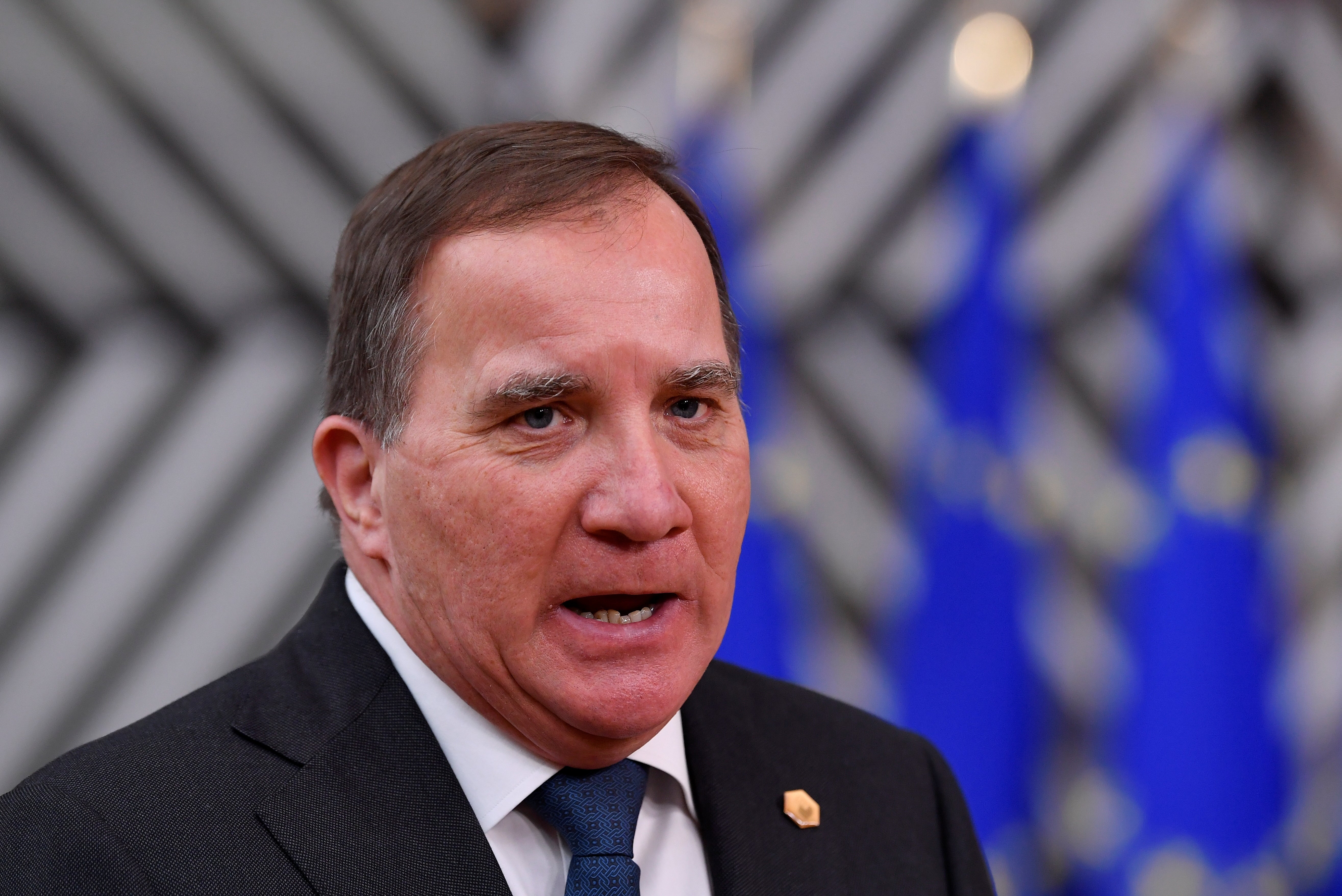Sweden could introduce mask-wearing as infection rates hit record
PM Lofven announced new restrictions as country records highest ever number of new cases

The Swedish Prime Minister announced new coronavirus restrictions on Friday after cases hit a new record high in the country.
Speaking at a press conference on Friday afternoon, Kjell Stefan Lofven, who has been Sweden’s PM since 2014, said he would roll out new measures, including a recommendation to wear masks in certain situations, to slow the spread of coronavirus cases.
Mr Lofven said he would close non-essential public sector workplaces for one month, lower the limit for groups at restaurants to four people and ban alcohol sales after 8pm.
He also said his government would introduce a cap on the number of people in shops, shopping centres and malls, and that he would recommend the use of face masks on public transport in certain situations.
Sweden rose to the global spotlight for its unorthodox way of handling the pandemic. Unlike other Western countries, it never introduced lockdown or forced businesses to close, choosing to rely on the sense of civic duty of its residents instead.
But infections have recently soared in the country. On Friday, Sweden reported 9,654 new coronavirus cases, an all-time high. The previous record was 8,881 cases just the day before.
So far, 7,993 people have died of coronavirus in Sweden. The country’s death rate per capita of 789 deaths per million people is several times higher than that of its Nordic neighbours. Norway’s rate, for example, is 74 deaths per million. But is lower than several larger European countries that introduced lockdowns. In the UK, the rate is 971 per million.
The Prime Minister’s announcement comes after the King of Sweden, Carl XVI Gustaf, appeared to condemn the government in a rare public intervention in which he said too many people had died in the country.
“I think we have failed,” he said in a pre-recorded interview due to be broadcast on 21 December. “We have a large number who have died and that is terrible … It is something we all suffer with.
“The Swedish people have suffered enormously in difficult conditions,” the monarch said. “Lately, it has felt more obvious, it has crept closer and closer. That's not what you want.”
Join our commenting forum
Join thought-provoking conversations, follow other Independent readers and see their replies
Comments


Bookmark popover
Removed from bookmarks